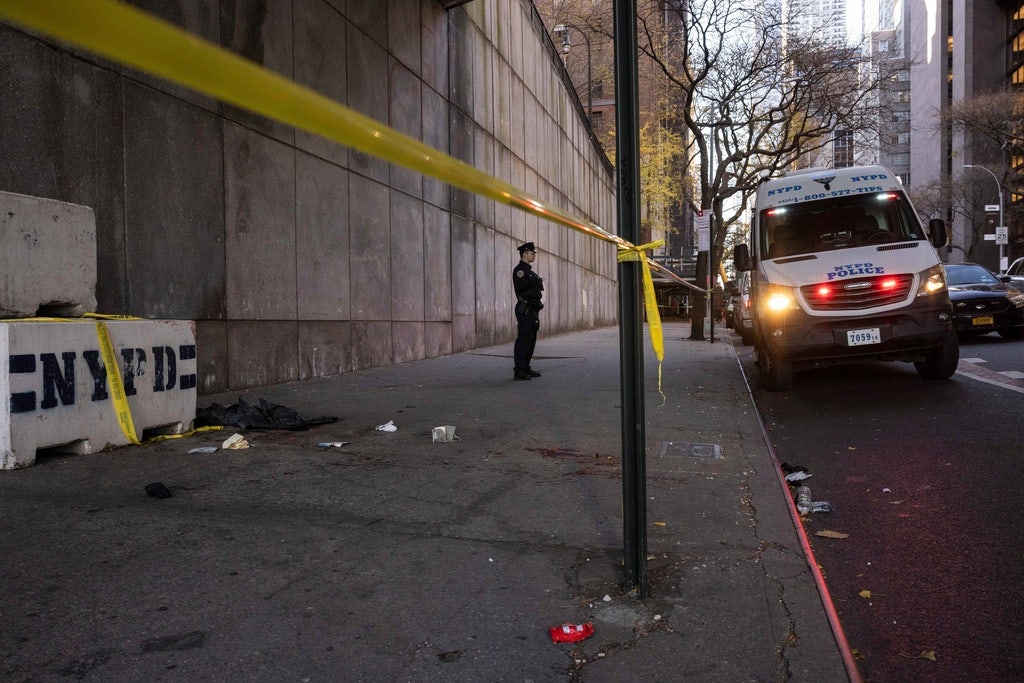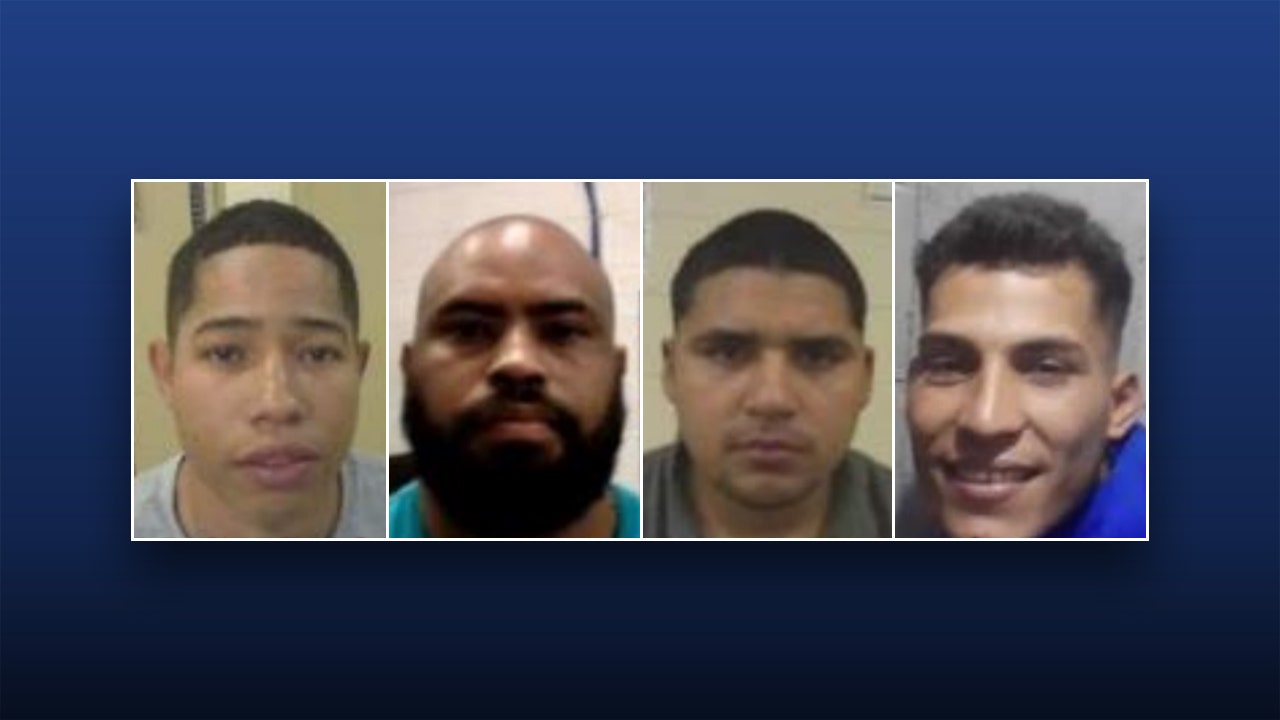Greg Sankey, the commissioner of the Southeastern Conference, is the ultimate soft power player. He does not produce pithy soundbites. He rarely raises his voice. Instead, he speaks opaquely, often requiring something like a college sports Kremlinologist to interpret his intentions.
He has also been at it for long enough that he is well practiced at throwing his weight around: kicking off a realignment wave by poaching Oklahoma and Texas, coauthoring a rewrite of the N.C.A.A. constitution and scoffing out of existence the possibility that the SEC would be shut out of the football playoff last season.
Recently, he teamed up with the Big Ten commissioner, Tony Petitti, to leverage a deal that will award their conferences about 60 percent of the television revenue for the 12-team College Football Playoff that begins next year, leaving crumbs for everyone else.
So, when Sankey told ESPN this month that it was time to rethink the N.C.A.A. men’s basketball tournament, the parsing began.
“We are giving away highly competitive opportunities for automatic qualifiers” from smaller leagues, Sankey said. “I think that pressure is going to rise as we have more competitive basketball leagues at the top end because of expansion.”
The takeaway: So long Cinderella. Give me a 17-14 Mississippi State.
Expansion of the tournament — from 68 teams to 80, 96 or even 128, as some reports have suggested — has been a popular topic as the tournament has started this week. The change would drive up television rights fees, and potentially ace smaller schools out of the action.
The most powerful counterpoint to the expansion plan yet came on Thursday night. It was delivered by Oakland University, a commuter school north of Detroit, which knocked Kentucky out of the tournament with a hail of 3-pointers by Jack Gohlke, a 24-year-old graduate student with a widow’s peak and the same regard for shot selection as a gunslinger busting through saloon doors.
If there were an avatar for the soul of March Madness, consider Oakland’s Golden Grizzlies, whose coach, Greg Kampe, is in his 40th season. And consider Gohlke, who spent the last five seasons at Division II Hillsdale College.
Nobody shot more 3-pointers in Division I basketball than Gohlke, and nobody has made more this season after he bombed in 10 3s for his 32 points on Thursday night.
Kentucky initially viewed him as a curiosity. Then an annoyance. Then a five-alarm fire, treating him like Steph Curry, using bumps, jersey clutches, switches and double teams. After Gohlke wriggled away for an off-balance rainmaker, Kentucky’s coach, John Calipari, threw up his arms in exasperation.
Stories like the Golden Grizzlies, who moved to Division I in 1997, “1,000 percent, they’re the essence of the tournament,” Gohlke said. “Historically, you always have those high seeds that go on to win the tournament. But you see the runs to the Final Four, the Elite Eight, the Sweet 16 — those are the runs that people remember, like Saint Peter’s getting to the Elite Eight. I don’t think we should lose that.”
Teams like that provided some juice on an otherwise lackluster first full day of the tournament: Duquesne, making its first appearance in 47 years, knocked off Brigham Young, and little Samford threw a scare into Kansas.
To understand the chasm between programs like Oakland’s and Kentucky’s, consider the newest measure that separates the haves and have-nots: name, image and likeness funds.
Oakland is just starting a collective that Kampe said had raised about $28,000 for his entire roster. He expects to need about 10 times that amount to keep his best player, Trey Townsend. Across the court, Kentucky’s team managers this week announced a sponsorship agreement that’s probably worth that much. (Freshman guard D.J. Wagner has deals with Nike, Drake and an exotic car club.)
Football drives conference realignment, and so many other decisions in college sports, because of the billions of dollars it generates. But in football there is no room for small schools like Oakland, even with an expansion of the playoffs to 12 teams. Appalachian State isn’t knocking off Georgia in a sport where size, strength and depth make it an unfair fight.
Some believe that restricting access for the little schools that could — George Mason, Davidson and Saint Peter’s — would strip March Madness of its magic.
“You know, we’re what makes this tournament, the little guy,” Kampe said on Wednesday, noting that it was the 70th anniversary of Jimmy Chitwood’s game-winning shot memorialized in the film “Hoosiers,” about an underdog high school basketball team.
He mentioned Townsend, Blake Lampman and Gohlke.
“They could be Jimmy Chitwood tomorrow night,” he said. “Don’t take that away from us.”
Kampe, 68, grew up in Defiance, Ohio, which seems fitting. He was intractable enough that Lampman, a fourth-year junior, remembers a teammate being punished for wearing different colored socks to practice. This season, D.Q. Cole, a junior college transfer, practices in Jolly Rancher socks.
Nobody paid much attention to Cole’s socks when, with Oakland clinging to a 75-74 lead, he knocked in a corner 3-pointer with 29 seconds left, stumbling back into the Oakland bench.
Across the court, among the Oakland fans, Lisa Gohlke was dissolving into a puddle of tears. Earlier in the day, she had shown her son a good-luck video from her students at Greenland Elementary near their home in Pewaukee, Wis.
The night before, she and her husband, Dave, a leadership adviser for a technology consultant, told Jack what parents say to their children when they don’t want to place their own anxieties on them: Have fun!
“I’m not here to have fun,” Jack told them. “I have work to do.”
At halftime, when he’d made seven 3-pointers, they marveled at the way he was blazing across social media. “They’re saying he looks 28,” his father said. “Forty,” corrected his sister Jennifer.
They were among the few who understood how he’d come to the moment. Hillsdale was the only scholarship offer he had received out of high school, but he was so skinny that he was redshirted his first season. He played three minutes per game the next year. And eight minutes the next.
“You’ve got to do a little introspection at that point, too,” Gohlke said. “I knew what I could be. But I also knew I wasn’t good enough. I wasn’t mad at my coaches; I wasn’t mad at anyone for not playing me. I knew I had to get better.”
And so he got stronger. He got quicker. And he put up shot after shot. He graduated last year with an accounting degree and wanted to use his last year of eligibility to get a master’s in business administration, which Hillsdale didn’t offer.
Oakland was the only offer he had — and it came with a green light.
In the game’s final seconds, Gohlke stood at the top of the key next to Kentucky’s silky freshman guard Rob Dillingham during a break. They shared a smile.
It had not gone unnoticed this week when Gohlke opined that Oakland had better shooters than Kentucky, which led the nation in 3-point shooting percentage. Dillingham had reminded him of that before the game, telling Gohlke he’d better prove it.
“Fair enough,” he said. “I was talking a little bit.”
At the end, Dillingham gave Gohlke props.
“He was saying, ‘Respect, you made it happen,’” Gohlke said. “I said I wish I was in your shoes going into the N.B.A. draft.”
The shoes he was standing in, provided only for this tournament, weren’t bad. Glass slippers that fit just right.






